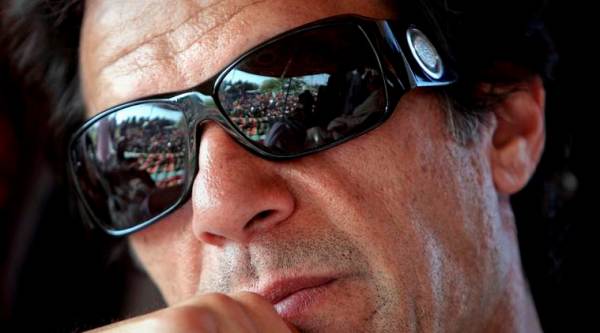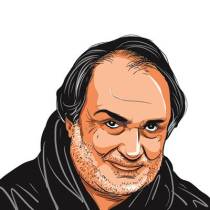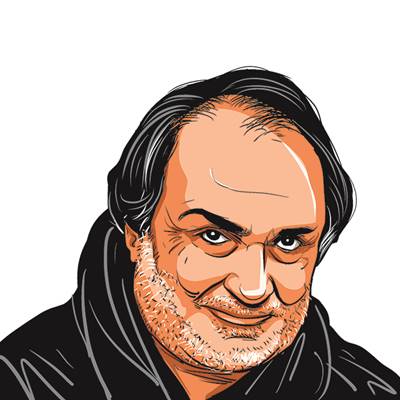Pakistan’s new captain
PML-N’s clash with Pak establishment, a media revolution, played a role in Imran Khan’s victory

Pakistani cricket legend and now politician Imran Khan is set to become the country’s prime minister. (AP Photo/Mohammad Sajjad/File)
Imran Khan will be the next Prime Minister of Pakistan. Despite expectations of a “sympathy vote” for ex-Prime Minister Nawaz Sharif, now serving 10 years in jail for money-laundering, the voter in 2018 has plumped for Imran Khan — charismatic and a far better communicator on the media and in the field than most Pakistani politicians. On July 25, his party, the Pakistan Tehreek-e-Insaf (PTI), was clearly ahead of the old incumbent, the Pakistan Muslim League-Nawaz (PML-N), enough to make the next government in Islamabad and in the “kingmaker” province, Punjab, with the help of smaller parties and independents.
The PTI has retained its majority in Khyber-Pakhtunkhwa (PK) where its governance was liked by an electorate that had a record of never electing a party twice. Shockingly for most analysts, it also won most seats in Karachi, the decades-old stronghold of the Muttahida Qaumi Movement (MQM), and is the second largest party in the Sindh Assembly after the Pakistan People’s Party (PPP).
The overthrown parties have rejected the polls because the Election Commission failed to stop the army officers ejecting their polling agents from the polling stations and not giving them the poll results. The Election Commission also failed to collect the results in time “because the new electronic technology failed” — another example of the failure of transfer of technology in the country, as in the auto industry sector, because of its ideology-dominated system of education.
The overthrow of the PML-N was on the cards because of its clash with the Pakistani establishment. The latter cleverly focused on the media to bring Khan to power. His PTI had lent a hand when the then army chief, General Ashfaq Parvez Kayani (2007-2013), decided to take on the United States over differences in Afghanistan. Khan’s party helped in blocking the convoys taking crucial supplies to the US-led coalition in Afghanistan as Khan pronounced the Afghan war the “wrong war” for Pakistan. He became a favourite of the Taliban — later chosen by them as their representative in peace talks with the PML-N government — who then helped by killing his electoral rivals in PK.
The “media revolution” that changed Pakistani politics sprang out of the realisation that Pakistanis watched television most of the time. One example of how it was done will suffice. BOL TV channel was set up by an organisation called Axact selling fake degrees all over the world. After Axact was hauled up in the United States, Pakistan arrested its chief executive Shoaib Sheikh. However, he was soon acquitted by a judge on the basis of “bad prosecution”. But when the case was reviewed on appeal, the judge admitted to accepting Rs 50 lakh as bribe.
The channel would have shut down had the Axact case not collapsed after the prosecutors ran away. (One of them who proved more steadfast was finally persuaded by a grenade exploding in his house.) To muddy the waters further, Hindustan Times reported in September 2013 that Dawood Ibrahim “and the ISI” were together financing
Bol TV when it was about to be launched in Karachi.
BOL TV has led the attack at the head of a score of other channels that vowed to take down the PML-N government. On the day of the elections, ARY “revealed” that Nawaz Sharif, sitting in a jail in Rawalpindi, had offered to leave Pakistan forever if he was freed. This false plant likely caused the stampede in TV-watching Punjab and resulted in more supporters jumping ship and voters not turning up. (The turnout is in the forties after reaching 55 per cent in 2013).
In Punjab, the south had already deserted the PML-N after strong prompting, and shrine-dominated Central Punjab was convinced to leave their old patron, the “blaspheming” PML-N. Two internationally outlawed outfits were “mainstreamed” by the caretaker government by allowing them to contest polls. Then an oddball judge of the Islamabad High Court, Justice Shaukat Aziz Siddiqui, went public accusing the ISI of arm-twisting the judiciary into crippling the PML-N with suo motu cases, and now faces action from the Supreme Judicial Council.
The PTI has governed its province KP well and has revived the Taliban-favouring Pashtun nationalism all over the country, including Karachi, the largest Pashtun city, thus snatching the support that had earlier gone to the Awami National Party (ANP). Khan will be helped into more isolationism internationally and more punitive forays internally as he pursues “accountability” and rounds up his opponents. The Election Commission will hardly send him to prison for six months for making a campaign speech while casting his vote saying Sharif had betrayed Pakistan by “siding with India and Pakistan’s enemies in the West”.
Ayesha Jalal, author of The State of Martial Rule: The Origins of Pakistan’s Political Economy of Defence (1990), says, “Constitutional provisions have not deterred the Pakistan Army from intervening in the past. It remains the final arbiter in Pakistan’s destiny, whether or not it wields power directly. In recent decades, partly because of the uneven results of military rule and also deepening polarisation, the army high command has preferred to influence decision-making from outside the established political system instead of assuming state power. When you come to power directly, you are also responsible. What could be better than to have all the powers and no responsibility?”
The writer is consulting editor, Newsweek Pakistan
For all the latest Opinion News, download Indian Express App
More From Khaled Ahmed
- Blasphemy Bites BackNawaz Sharif had the opportunity to scrap the law that has landed him in prison. ..
- A Poll Outcome ForetoldWhen a Pakistan PM falls foul of the deep state, the Opposition, senior bureaucrats and the judiciary get together against him...
- The Pakistan ParadoxPakistan’s persona non grata, ex-ambassador to the US, Husain Haqqani, in his book Reimagining Pakistan: Transforming a dysfunctional state, lists the reasons why Pakistan today…








































No hay comentarios:
Publicar un comentario